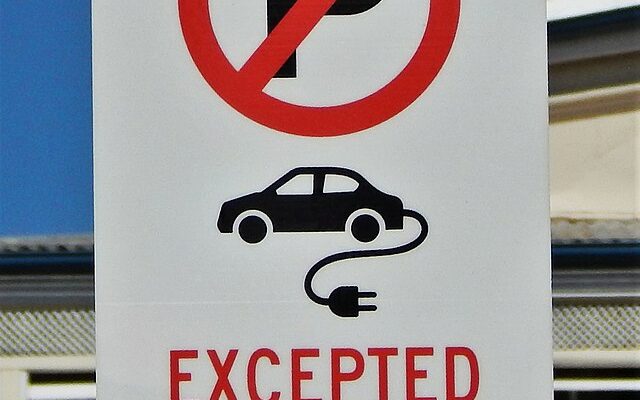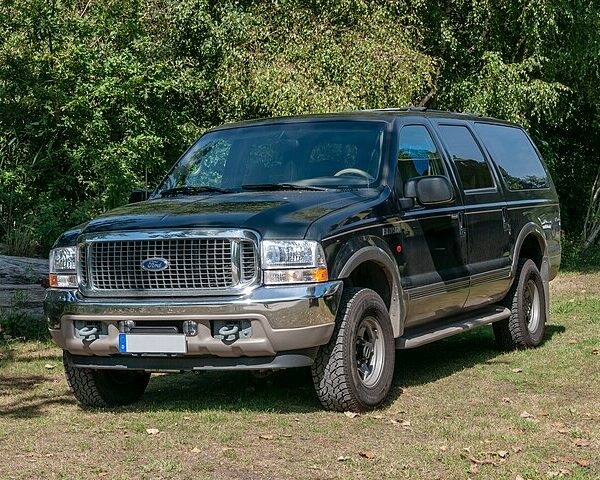
Joe Biden has a desperate obsession with electric vehicles. Under his version of Green New Deal, the White House has spent billions trying to do away with gasoline vehicles in the name of saving the planet from climate change.
In January 2023, for example, John Podesta, the handpicked “czar” to dole out all the “green energy” cash announced that the Post Office would be adding 66,000 fully-electric vehicles to its aging fleet and has agreed to spend nearly $10 billion on “next generation” vehicles.
Last fall, as EV inventories piled up as sales lagged, the Big Three automakers began begging Biden to slow his roll in forcing them to build electric vehicles.
Business Insider reported last fall that “several C-Suite leaders at some of the biggest carmakers voiced fresh unease about the electric car market’s growth as concerns over the viability of these vehicles put their multi-billion-dollar electrification strategies at risk.
Among those hand-wringing is GM’s Mary Barra, historically one of the automotive industry’s most bullish CEOs on the future of electric vehicles. GM has been an early-mover in the electric car market, selling the Chevrolet Bolt for seven years and making bold claims about a fully electric future for the company long before its competitors got on board.”
Now, a recent study has proven that the liberal push for EVs is a fool’s errand all around. They’re actually worse for the environment than their gasoline counterparts.
Where do most particulate emissions attributed to cars come from? California speaks as if their primary source is the tailpipe. That was true in the past. But today most vehicle-related particulate matter comes from tire wear. Cars are heavy, and as their tires rub against the road, they degrade and release tiny, often toxic particles. According to measurements by an emission-analytics firm, in gasoline cars equipped with a particle filter, airborne tire-wear emissions are more than 400 times as great as direct exhaust particulate emissions, writes The Wall Street Journal.
California calls electric cars “zero emissions vehicles” because they don’t have tailpipes. That is deceptive. Generating the electricity that powers those cars creates particulate pollution, and of course electric cars still use tires, which are made from petroleum. Electric cars weigh far more than gasoline-powered ones, so their tires degrade faster, as electric car buyers are learning. The same analytics firm cited earlier compared two cars—a plug-in electric and a hybrid. The electric car weighed about one-third more than the hybrid and emitted roughly one-quarter more particulate matter because of tire wear. Total direct emissions went up, not down, when the electric car was driven.
But when California’s air agency analyzed the effects of its ban, it used a model that assumes both kinds of cars have the same tire wear. When the public pointed out the error, the agency doubled down, claiming it would be “speculative” to assume that electric cars will continue to be heavier than gasoline cars. The agency mused that in the future automakers could probably “offset” the weight of heavy batteries with unspecified “weight reduction in other components or the vehicle body.”
California’s bureaucrats have it backward. What’s “speculative” is assuming that electric cars will soon weigh the same as the gasoline cars they replace. Electric cars are 15% to 30% heavier because batteries store far less energy per pound than liquid fuels. While weight differences between electric and gasoline cars have remained roughly constant over the past decade, the only reasonable prediction of trends is for electric cars to get heavier as manufacturers increase battery size to boost range.
The people paying the price the most for Biden’s mandates are the workers who build cars.
Steve Milloy, Senior Policy Fellow for the Energy And Environment Legal Institute, said that Biden’s obsession with EVs has been a “disaster” for the automotive industry.
“Joe Biden’s policies have been a disaster for the car industry, especially its workers,” Milloy noted. “Carmakers are losing tens of thousands of dollars on each EV sold. EV production is reducing the number of autoworker jobs. Pointless fuel economy standards are making cars so expensive that drivers are holding on to their cars for twice as long as they used to. None of that is good for jobs or wages. But Biden doesn’t care. His anti-car climate agenda is more important.”
Last week, liberals on Bill Maher’s show, including Maher, were made uncomfortable when Newsweek’s Batya Ungar-Sargon pointed out that the EV obsession Biden has may be costing them union votes throughout the Midwest.
Bill Maher asks Batya Ungar-Sargon about the 100k uncommitted votes in the Michigan primary:
"The media really wants to put this narrative out there that Biden is going to lose Michigan over Gaza when the truth is he's going to lose Michigan over 600k auto workers. Because his EV… pic.twitter.com/LqXwtZvXzh— Eric Abbenante (@EricAbbenante) March 2, 2024
Despite evidence, don’t expect any changes in liberal orthodoxy on automobiles any time soon.
Expect the White House to adopt California’s stance on the study’s showing how dirty EVs actually are. It’s true, so long as you believe in magical innovation yet to be invented and only count pollution coming from the tailpipe.
The Daily Mail noted, “California claims that banning gas vehicles would protect public health from airborne pollutants like dust, dirt and soot, calling EVs ‘zero-emission vehicles,’ but the heavier weight drastically impacts how quickly tire tread wears out.
Yet, the state’s proposal, submitted by the Air Resources Board, suggested that tire treads on EVs and gas vehicles wear out at the same rate, which was criticized by the public, but the state said ‘it would be speculative to project’ that EVs would not weigh less in the future.
It added that future EV models’ weight could be ‘offset’ with ‘weight reduction in other components or the vehicle body,’ – although the agency did not provide examples about how the weight would be reduced.”
The newspaper did a quick comparison of weight between gas and electric vehicles: “The average Hyundai electric vehicle weighs more than 3,700 pounds compared to the gas-powered alternative which weighs 3,000 pounds.
Meanwhile, Volvo’s EV weighs 4,662 pounds while its gas-powered vehicle weighs 3,726, but the Ford F150 EV truck comes in at a whopping 6,000 pounds, 2,000 pounds more than the gas option.”
[Read More: Border Patrol Chief Reveals Truth About Biden]











